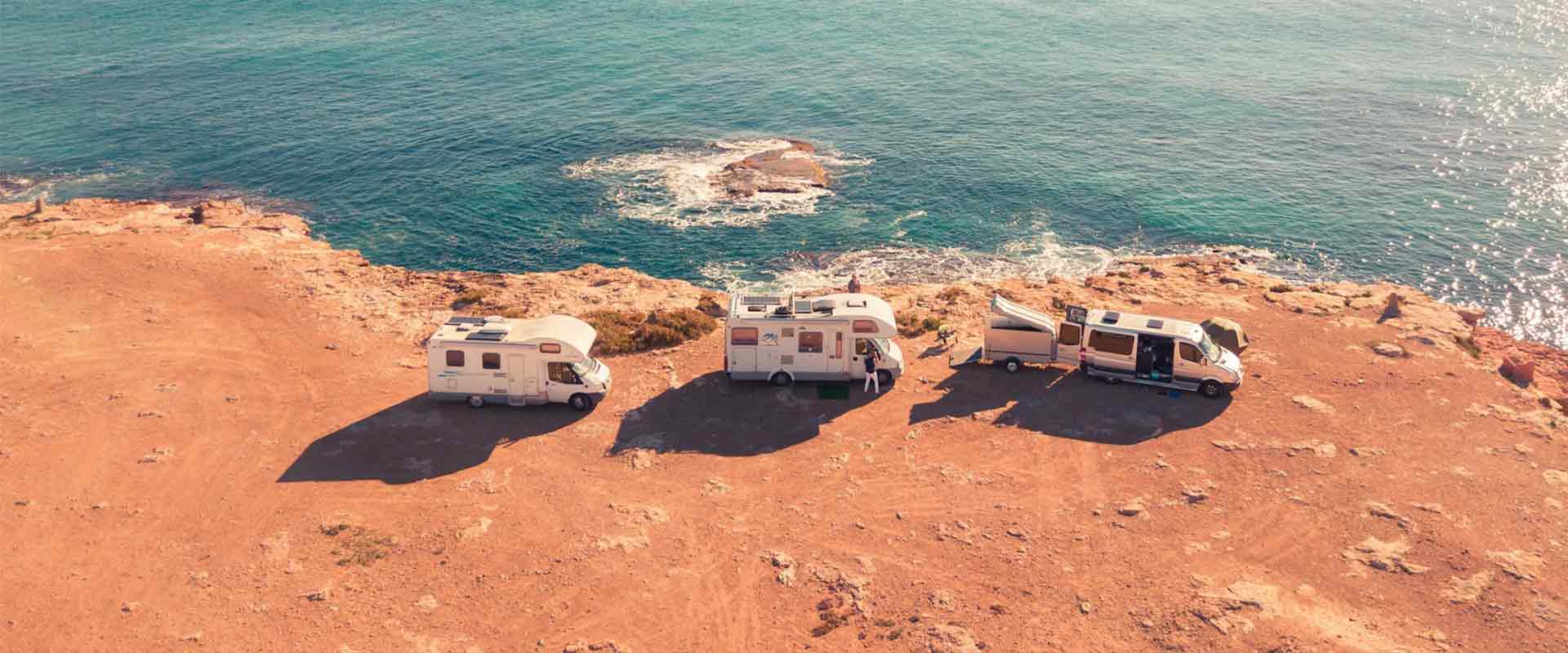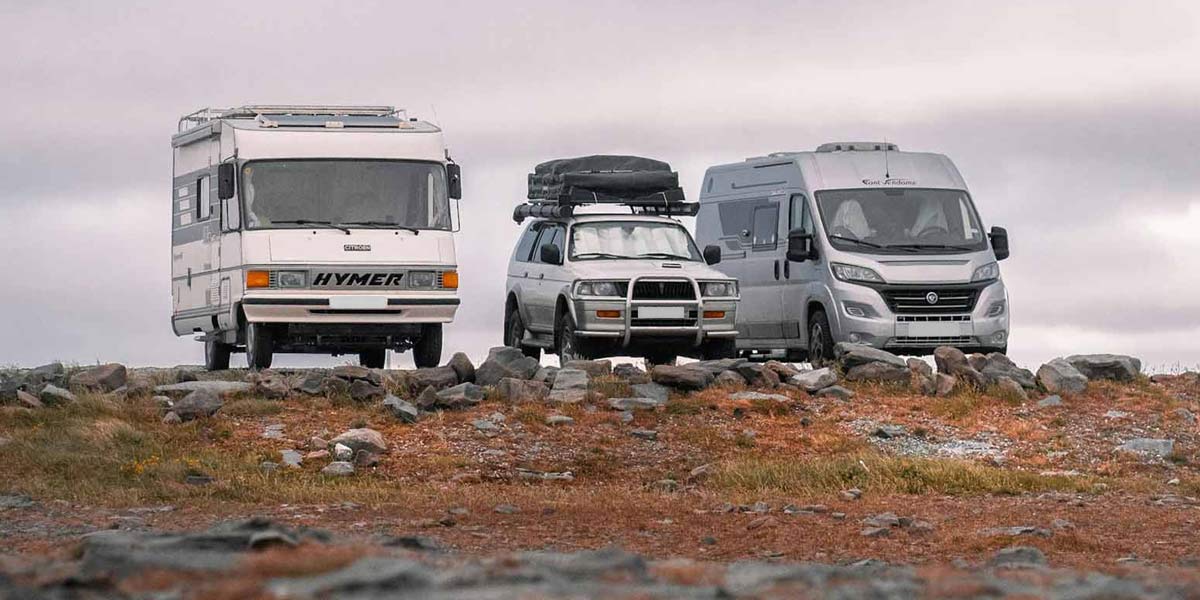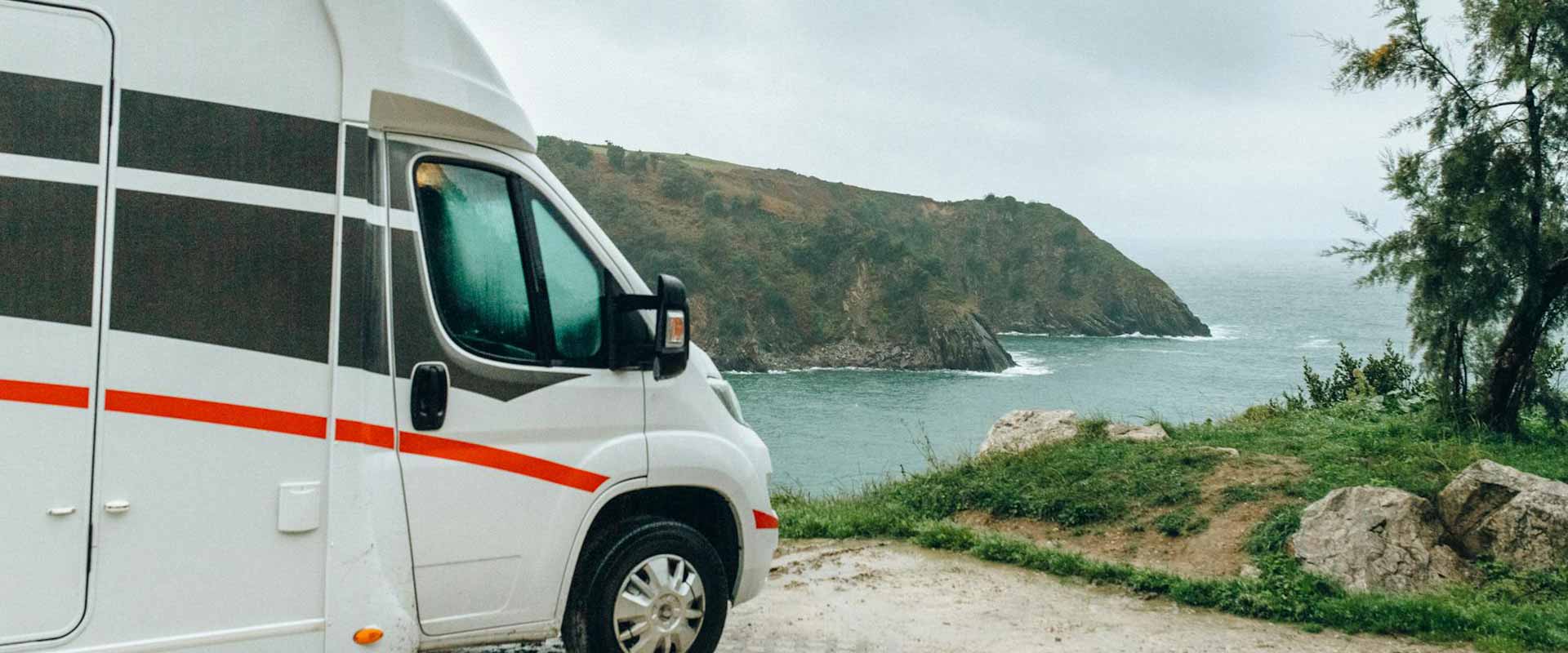This guide covers the key differences among UK motorhome classes, what sets them apart from campervans, and the essential factors to consider when insuring your motorhome.
With the popularity of vanlife increasing across the UK, many people are turning to motorhomes and campervans for the freedom and flexibility of the open road. But for those at the beginning of their van life journey, understanding the different classes and navigating insurance requirements can feel overwhelming.
What Exactly Is a Motorhome?
Before delving into the specifics, it’s important to understand the definition of a motorhome. A motorhome, also known as a recreational vehicle (RV), is a self-contained unit with living facilities, ideal for extended trips or living on the road. They typically include built-in sleeping areas, cooking facilities, and bathroom facilities, which are all integrated into a vehicle designed for road travel.
Motorhomes are also larger than campervans, typically offering more space and comfort.

Motorhomes vs Campervans
Although the terms “motorhome” and “campervan” are often used interchangeably, there are some key differences in functionality, driving experience, and even insurance coverage. Here’s how they compare:
Motorhomes:
- Are generally larger, more spacious, and equipped with better living facilities for long-term vanlife.
- Often have multiple rooms, a separate bedroom, bathroom, and full kitchen area.
- Are categorised into three different classes: Class A, Class B, and Class C – each defined by different features.
Campervans:
- Are usually smaller and more compact vehicles, built on a van chassis.
- Are ideal for those looking for good mobility and affordability.
- Are better suited for shorter trips and are easier to drive in urban areas.
According to the National Caravan Council, motorhome sales remain strong, which was evident at the latest Motorhome and Caravan Show held at the NEC in October 2024, where exhibitors reported an impressive number of sales. This highlights the growing popularity of leisure vehicles in the UK.

Motorhome Classes
There are three motorhome categories: A, B, and C.
Class A Motorhomes
Class A motorhomes are built on a specially designed chassis, providing high-end luxury, space, and facilities.
- Size: Typically 7-12 metres long.
- Features: Often include multiple slide-outs, luxurious amenities, and spacious living areas.
- Best For: Long-term travel and families on the road.
Class B Motorhomes (Campervans)
Class B motorhomes are compact and built on a standard van chassis, offering great versatility and easy handling, with enough space for essential living facilities.
- Size: Generally 5-7 metres in length.
- Features: They often have basic kitchenettes, bathrooms, and sleeping areas.
- Best For: Solo travellers or couples wanting a smaller camper that they can take anywhere.
Class C Motorhomes
Class C motorhomes are built on a van or truck chassis and feature a distinctive cab-over bed area.
- Size: Usually 6-10 metres long.
- Features: These typically have a comfortable living space with a focus on practicality.
- Best For: Families or small groups seeking more space than a Class B motorhome can provide.
Current market trends show that Class B motorhomes (campervans) are the most popular type of leisure vehicle in the UK, favoured for their easy manoeuvrability, reasonable living space, and compact dimensions.

DVLA Definitions and Regulations
The UK’s Driver and Vehicle Licensing Agency (DVLA) classifies motorhomes differently from other vehicles, affecting driving licence requirements, registration, and insurance too.
Definition and Licencing
Motorhomes must be classified and registered correctly for insurance purposes and to comply with road regulations. Click here to see the official information about reclassifying a vehicle as a motorcaravan.
Category C1 Licence
This is required for individuals driving vehicles that weigh more than 3,500 kg.

How Can I Get Motorhome Insurance?
Choosing the right insurance policy is essential for motorhome owners. Comprehensive coverage should address the vehicle’s value, personal belongings, road risks, and any modifications. Make sure your insurance provider is aware of all modifications to avoid invalidating your cover.
Types of Coverage:
- Third-Party: This is the minimum legal requirement.
- Comprehensive: This covers theft, damage, personal items, and more.
- Breakdown Cover: This is essential for long-distance travel or remote destinations.
Insurance Discounts
Installing approved security devices and safety equipment, such as trackers, immobilisers, and fire extinguishers can reduce premiums.
Got questions about motorhome insurance? Read our separate blog where we’ve answered all the common questions in detail!
For more information about motorhome and campervan cover, click here.
Parts & Accessories
If you’re looking for essentials for your camper, visit Just Kampers (our sister company). They’ve got a huge selection of parts and upgrades available, including fridges and solar panels, and everything in between.
In Conclusion
Navigating the world of motorhome classes, sizes, and insurance can seem a little complicated, but understanding these details is vital for any vanlifer. Whether you opt for a luxurious Class A, a versatile Class C, or a compact Class B, choosing the right vehicle and insurance policy ensures you travel safely and confidently.
If you’re looking to insure your motorhome or campervan without any stress, you’re in the right place. Here at Just Kampers Insurance, we offer reliable cover with prices starting from just £225 per year! With decades of experience, and a team full of enthusiasts, we’ve got you covered.
Give us a call on 01256 44 45 46 to find out more, or get an online quote.
